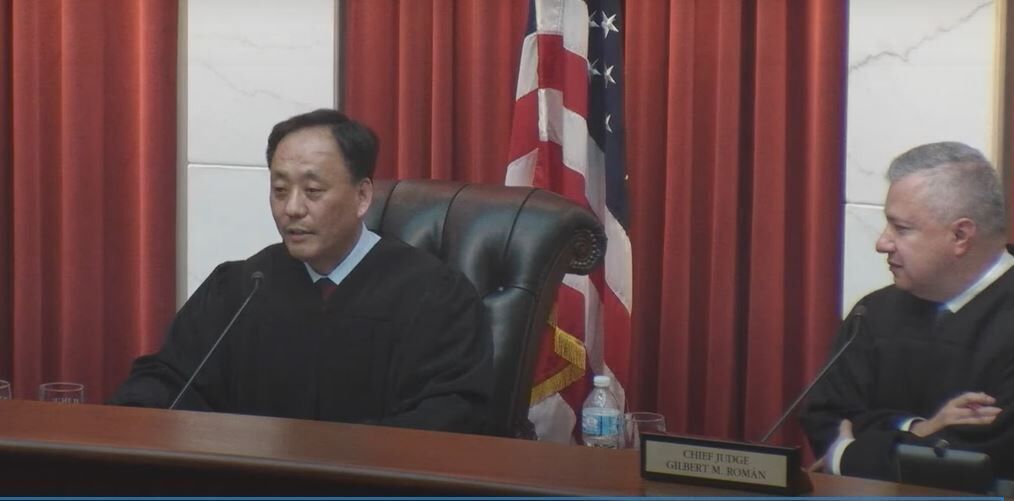Appeals court upholds lifetime sentence for non-triggerman in Colorado Springs murder

It does not violate the Eighth Amendment’s prohibition on cruel and unusual punishment to sentence an adult to life in prison without parole for a death they did not cause, Colorado’s second-highest court has ruled.
Wayne Sellers IV challenged his sentence, the most severe punishment authorized under Colorado law, for the crime of felony murder. A defendant can be found guilty of felony murder if they participate in several serious offenses and someone dies as a result – even if the defendant did not commit the killing.
Although the U.S. Supreme Court has declared certain sentences – mandatory life without parole and the death penalty – off limits for specific categories of defendants and offenses, a three-judge panel of the Court of Appeals decided no such prohibition existed for Sellers’ sentence.
“Sellers cites no case – and we are aware of none – extending the categorical approach to cases not involving the death penalty or juvenile offenders,” wrote Judge Ted C. Tow III in the Sept. 8 opinion. “In fact, the Supreme Court has upheld a life-without-parole sentence for an adult offender – even in a nonhomicide case.”
Soon after Sellers appealed his 2019 conviction for felony murder in El Paso County, state lawmakers enacted reforms to the felony murder statute in an effort to inject fairness into the sentencing process. Lawmakers repeatedly heard from witnesses that the “punishment does not fit the crime” if a person receives a lifetime prison sentence when they did not personally kill anyone, or even know someone would die during the commission of another crime.
“When a suspect participates in a felony and somebody dies, whether that person helped commit the murder or was simply a participant in the felony, they are culpable,” said Brian Mason, district attorney for Adams and Broomfield counties. But, he added, that person “does not have the same level of culpability, in my view, as someone who commits first-degree murder.”
The Sentencing Project and Fair and Just Prosecution, two criminal justice reform groups, have advocated for, at minimum, repealing lifetime and death sentences for felony murder, arguing such punishments incarcerate people far beyond when they are no longer dangerous and disproportionately affect young defendants and people of color. Similarly, the legislative sponsors of the felony murder change in Colorado pointed to data showing at least 40% of those convicted for felony murder over a three-year period in the state were people of color, a percentage that exceeds the proportion of minorities in Colorado’s general population.
Sellers, who is Black, was 20 years old when he rode with a group of men in Colorado Springs as part of a drug deal. They first stopped at a 7-Eleven, where one of the men robbed a drug dealer and Sellers brandished his gun. They then drove to a neighborhood to purchase cocaine.
Another member of the group, Tyler Lee Wheeler, exchanged gunfire with the dealer, Kenyatta Horne. Sellers took out his gun and fired all of his bullets, allegedly in self-defense, but it was Wheeler who killed Horne.
A jury convicted Sellers of aggravated robbery and, because robbery is an offense that triggers the felony murder law, jurors also found him guilty of felony murder. District Court Judge Lin Billings Vela imposed the mandatory sentence – at the time – of life without parole.
The legislature then changed the felony murder law, reclassifying the offense as a class 2 felony with a punishment between 16 and 48 years in prison. The bill only applied to offenses going forward, however. Multiple district attorneys supported the change, although the Fourth Judicial District Attorney’s Office, which prosecutes cases in El Paso County, did not.
“This almost incentivizes (people) to kill the victim,” Chief Deputy District Attorney Jennifer Viehman testified to a Senate committee.
Shortly after the felony murder reclassification took effect, the Court of Appeals panel reviewing Sellers’ case asked the parties to explain why his sentence was or was not constitutional in light of the General Assembly’s action. Sellers referenced the Supreme Court’s consideration of “evolving standards of decency” in arguing mandatory life without parole for felony murder was cruel and unusual punishment.
“This is evidence that Colorado’s evolving standards of decency no longer sanction LWOP for felony murder,” argued attorney Krista A. Schelhaas. During oral arguments before the appellate panel, she added there is a “national consensus” that mandatory life without parole is inappropriate.
“Has any other state or the federal system declared life without parole for felony murder unconstitutional?” Tow asked. Schelhaas responded that Colorado was an outlier with its life without parole mandate, but Tow interjected that even if the punishment were “unusual” under the Eighth Amendment, it also had to be “cruel.”
In the panel’s opinion, Tow explained the Supreme Court has not given the green light for lower courts to extend prohibitions on cruel and unusual punishment to cases where adult offenders are serving sentences for murder. He acknowledged the Colorado Supreme Court has declared legislative changes to criminal law, even if they do not apply retroactively, should be considered as part of “evolving standards of decency” when judges examine the proportionality of a sentence.
But even with the reclassification of felony murder as a lesser offense, “the legislature has still made clear that it considers felony murder a serious matter,” Tow wrote.
“While we recognize that this life sentence is potentially substantially longer than the maximum forty-eight years a defendant in Sellers’s shoes could receive under the amended statute, and that Sellers is not eligible for parole,” he continued, “those differences do not mean that the sentence is grossly disproportionate.”
Although the Court of Appeals panel rejected most of Sellers’ other claims on appeal, they did agree Billings Vela, the trial judge, had not specifically stated whether one of Sellers’ robbery convictions should run concurrently or consecutively to his life sentence. Court paperwork labeled the sentence consecutive, but the panel decided Billings Vela’s ambiguity meant the sentences by default had to run concurrently.
The case is People v. Sellers.












